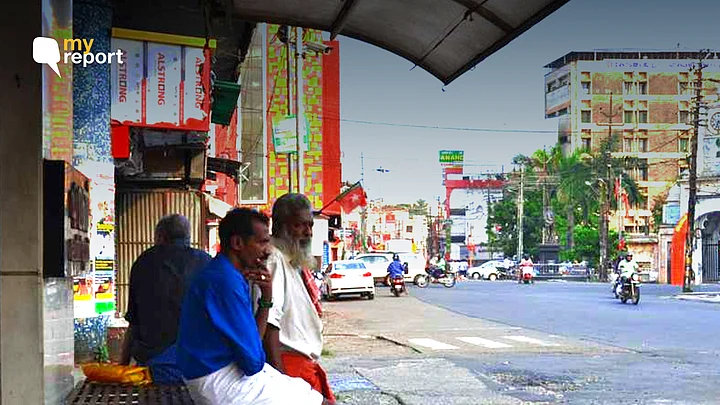On 20 December 2018, over 35 trade organisations together declared 2019 to be the ‘anti-hartal year’ in Kerala but couldn’t hold on to it as a hartal was declared in the first week of the new year itself.
Mahima, a student of MG University in Kottayam expressed to me her frustration over the random declaration of hartals in the state.
“Kerala must be given a tagline of ‘Hartal’s Own Country’. Whenever I hear a news on declaration about hartal I think “Oh here it comes again! Another holiday.””Mahima
Suffice to say that this is not a new phenomenon. In 2013, board exams become more challenging than usual for a bunch of students in Kerala. For an exam at 10:30 am, students reached about 6 hours early at 4 am. This wasn’t a preparation strategy but a precautionary measure against a hartal that was announced that day.
In response, a ‘Say No to Hartal’ campaign was launched, spearheaded by the youth in the state. “If the political parties want to take out their angst on us, let them do so, but we will go ahead with our mission,” the campaign’s head Raju P Nair told Times of India at the time.
Ethics is to know the difference between what you have a right to do and what is right to do. I believe that wisdom doesn’t necessarily come from literacy. Maybe that is the reason that citizens of country’s most literate state fail to perceive the basic principles of dissent.
Kerala High Court banned bandhs for the first time in the country in 1997, which was later upheld by the Supreme Court. The political parties stopped using the word “bandh” after the ban.
The bandhs didn’t stop though; they were just replaced with the word “hartal”. There have been several incidents of violence when political parties enforced hartals.
Despite being an assault on their fundamental rights, people stopped reacting against hartals because of these violent incidents. So instead of protesting they have started celebrating hartals. As Harish, an owner of a small resturant in Kottayam aptly puts it:
“It is considered a public holiday here. Liquor sales in Beverages Corporation outlets on the day before a hartal usually shoot up.”Harish
Rakesh, a garment shop owner in Kottayam, while recalling his loses due to hartals told me that not a lot has changed over the years.
“After Supreme Court declared ban on bandhs, perhaps violence has come down. People avoid moving out of their homes and this is projected as if they are supporting a hartal which is not the case. I have missed many working days due to hartal. I am afraid to keep my shop opened on hartal because I have heard shops being forcibly shut and owners beaten up by these hartal callers.”
When Misha (name changed) first moved to Kerala from Delhi to prepare for NEET, she was surprised by the attitude of locals towards hartals.
“When I noticed a hartal being declared I asked my classmate about the reason and she reacted so casually and said ‘Welcome to Kerala’. One thing you will hear a lot here is this H word. It becomes a part of your Kerala life.”
Similarly, while coming out of a travel bookings office in Kottayam, Renu keeps her fingers crossed, as she just booked a flight to Delhi. Last time she almost missed her flight due to a flash hartal. Recalling her experience, she says:
“Planning according to weather, time and other things is secondary in Kerala. Primarily, look out for hartal announced in your district, because there are high chances for it. Hartal is the non-aggressive way to express protest, but today it is used largely for anything at all. Even small groups use it to show off their might.”
While hartals might seem a justified way of protest under a democracy, studies have revealed that nearly 95 percent of those in the unorganised sector – fish workers, construction workers, other daily wage workers – are deprived of a day’s work and wages as a result. We hence must question their usage in society.
Protest against protest might sound strange but this is what is happening in Kerala lately. Organisations that reject the idea of ‘imposed will’ of a section on the society in the name of hartal have proliferated. Hartal Virudha Munnani (HVM) is one such organisation formed under Humanist Movement.
Sushant NP, a member of HVM, told me that in a hartal people are not really protesting, yet they become the victims of might and fear that is propagated. A minority imposes their intentions on others for their petty political gains. Nobody gains and everybody loses including those who impose it.
During the hartal, public life is paralysed not because of protest but because of fear of losing life and the property.
(The author is a student of journalism at Indian Institute of Mass Communication, Kottayam. All 'My Report' branded stories are submitted by citizen journalists to The Quint. Though The Quint inquires into the claims/allegations from all parties before publishing, the report and the views expressed above are the citizen journalist's own. The Quint neither endorses, nor is responsible for the same.)
(At The Quint, we question everything. Play an active role in shaping our journalism by becoming a member today.)
